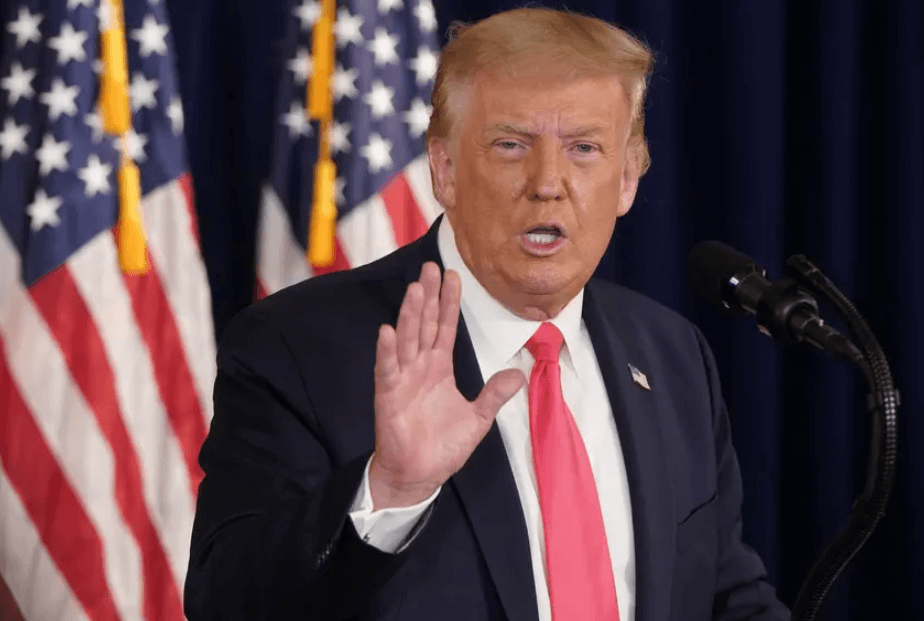
By ABBY LIVINGSTON, Texas Tribune
President Donald Trump signed the stimulus bill into law on Sunday night, releasing $900 billion in stimulus funds into the economy and averting a government shutdown this week on Dec. 29.
Trump had demanded changes to the stimulus and spending package for a week, but ended up signing the bill while vacationing in Florida. He stated: “Much more money is coming, and I will never give up my fight for the American people!”
The government would have shut down Tuesday if Trump hadn’t acted. In addition to containing money to fund government operations, the spending package also includes emergency relief money that finances a new round of stimulus checks, unemployment aid and small-business assistance, among other things.
The House and the Senate passed the bill on Dec. 21. The COVID-19 aid was paired with a larger spending bill that would fund the government through September.
Congressional leaders released the bill — the result of eight months of negotiations — in the twilight of the current congressional session. Because of internal squabbles and a last-minute computer glitch that delayed the printing and posting of the bill last week, members had only a matter of hours to examine the legislation before they were expected to vote on Dec. 21.
The delegation was far more split than in previous rounds of COVID-19 legislation. Ten Texas Republicans voted against the bill: U.S. Sen Ted Cruz and U.S. Reps. Brian Babin of Woodville, Michael Burgess of Lewisville, Michael Cloud of Victoria, Mike Conaway of Midland, Louie Gohmert of Tyler, Lance Gooden of Terrell, Chip Roy of Austin, Van Taylor of Plano and Randy Weber of Friendswood. Three Texans were not present for the vote: John Carter of Round Rock, Kenny Marchant of Coppell and Ron Wright of Arlington. All Texas Democrats backed the bill.
Cruz and other Republicans praised provisions of the aid but objected to the circumstance that it was tied to a massive spending bill with unrelated provisions.
“Had this bill been solely focused on re-opening the economy, getting Americans back to work, and jump starting a recovery, it would have had my enthusiastic support,” Cruz said in a statement.
The most direct impact the legislation will have on the average American is a $600 payment to individuals making less than $75,000. The payout will be reduced for those making between $75,000 and $99,000 and will not apply to individuals who earn more than $99,000 a year. The bill will reinstate supplemental unemployment benefits of $300 per week. This is half of what was allocated for individuals in the previous COVID-19 economic package.
“The new stimulus bill provides some much needed breathing room for restaurants like ours that have been hit hard by the pandemic,” said Eric Silverstein, the Austin owner of The Peached Tortilla, in a news release from the Texas Restaurant Association.
The legislation also allocates another $284 billion to the Paycheck Protection Program, a controversial initiative that allocates forgivable loans to small businesses affected by the pandemic.
The new legislation will also extend eviction protection through the end of January.
Additional money will be available to live music and theater venues, thanks to a bipartisan push on the part of U.S. Sens. John Cornyn, R-Texas, and Amy Klobuchar, D-Minnesota.
“They’re likely to be the last to open … so I’m glad that we were able to do this,” Cornyn told reporters about an hour after the bill’s text was released to the public.
Treasury Secretary Steve Mnuchin said in recent days he hoped to get the direct payments out the door as quickly as possible. The first recipients are expected to be Americans who previously gave their direct deposit information to the IRS in order to receive tax refunds. For those Americans who have not synced that information with the government, they can anticipate receiving a paper check or debit card from the government, per CNBC.
The legislation appropriated tens of billions of dollars for transportation — including airlines, airports and trains — education, vaccine distribution and food stamps.
In a similar tradeoff, Republicans were also able to include a 100% tax deduction for what is known as “the three martini lunch” — a tax break for corporate meal expenses — in exchange for tax deductions for low-income families, per The Washington Post.
The aid package will also include payments to American citizens in mixed-status families who are married to immigrants who lack Social Security numbers.
Chip Roy of Austin criticized the speed and haste for such a consequential bill, saying he and other members from both sides of the aisle echoed his complaints about not having adequate time to read the bill before voting.
“Hundreds of pages of cap-busting spending, throwing billions at airlines and billions at schools that are locked down, paying people more to not work than to work, handouts to big corporations, ‘green’ renewable stuff, post office bailout, pork, & too much other garbage to name,” Roy added on Twitter.
Democrats pined for trillions more in spending, and some said they are holding out hope that another round of economic stimulus might come in the new year when President-elect Joe Biden takes power.
The stimulus bill is a follow-up to the CARES Act, which members scrambled to pass in late March.
Texas Tribune is a nonpartisan, nonprofit media organization that informs Texans — and engages with them – about public policy, politics, government and statewide issues.

